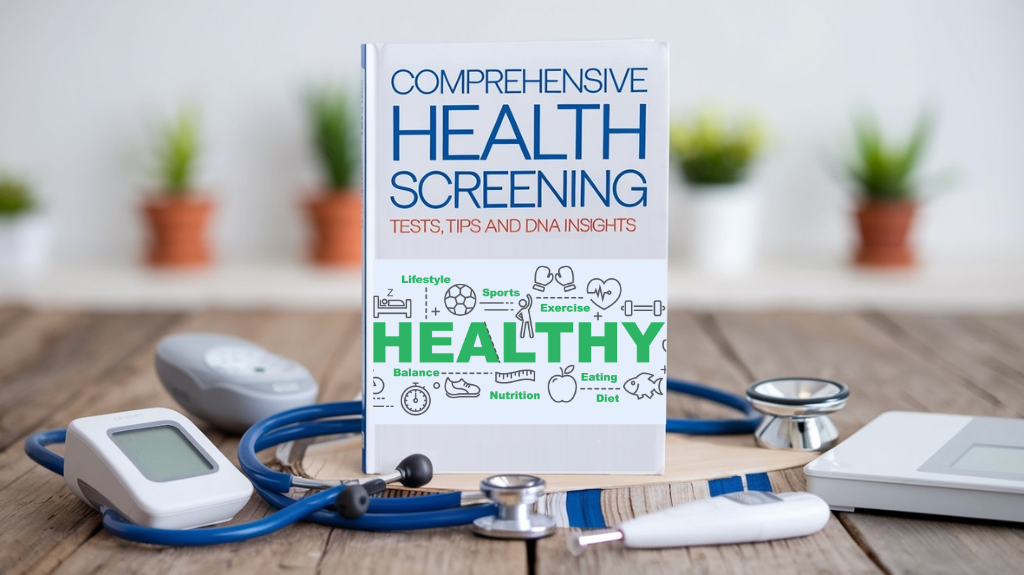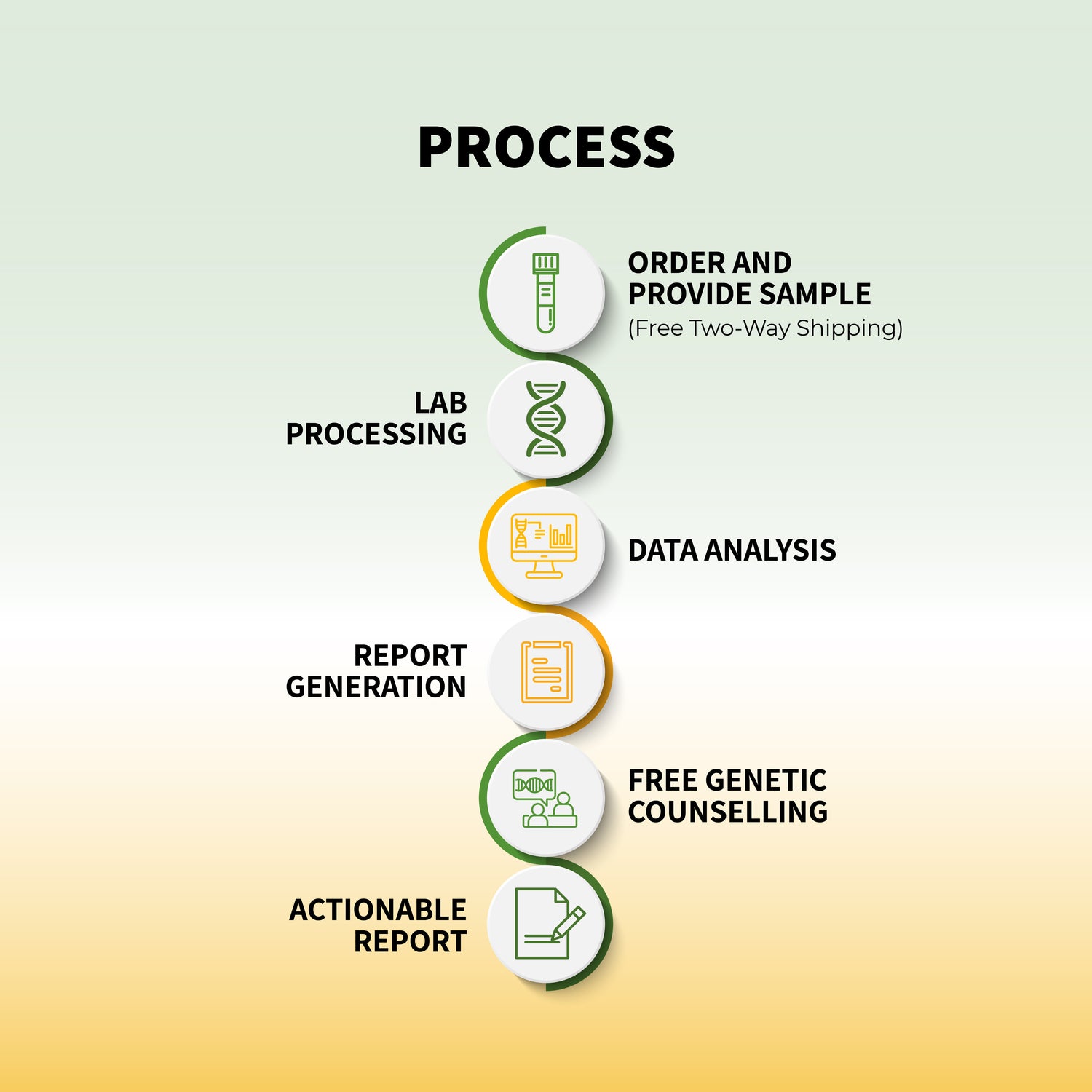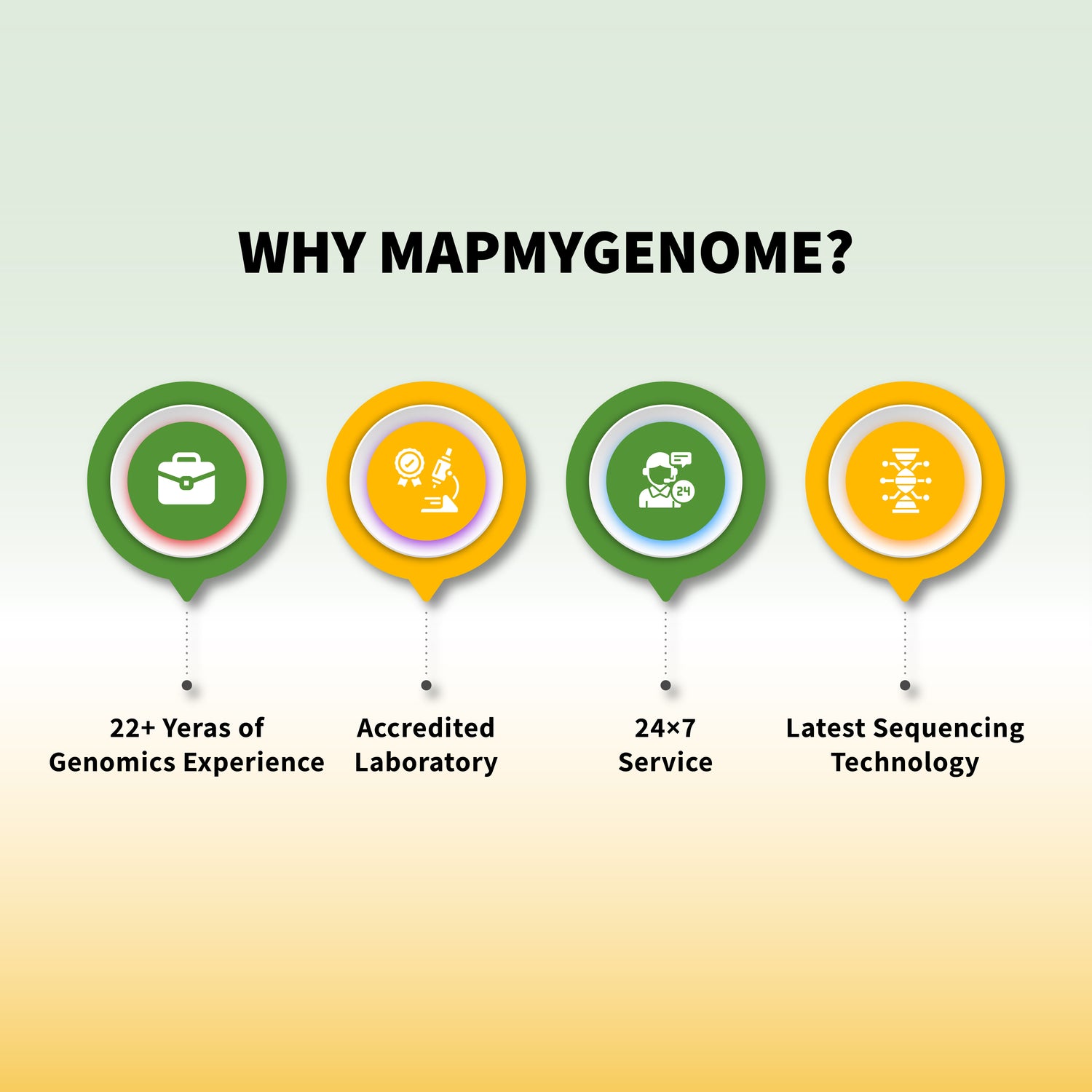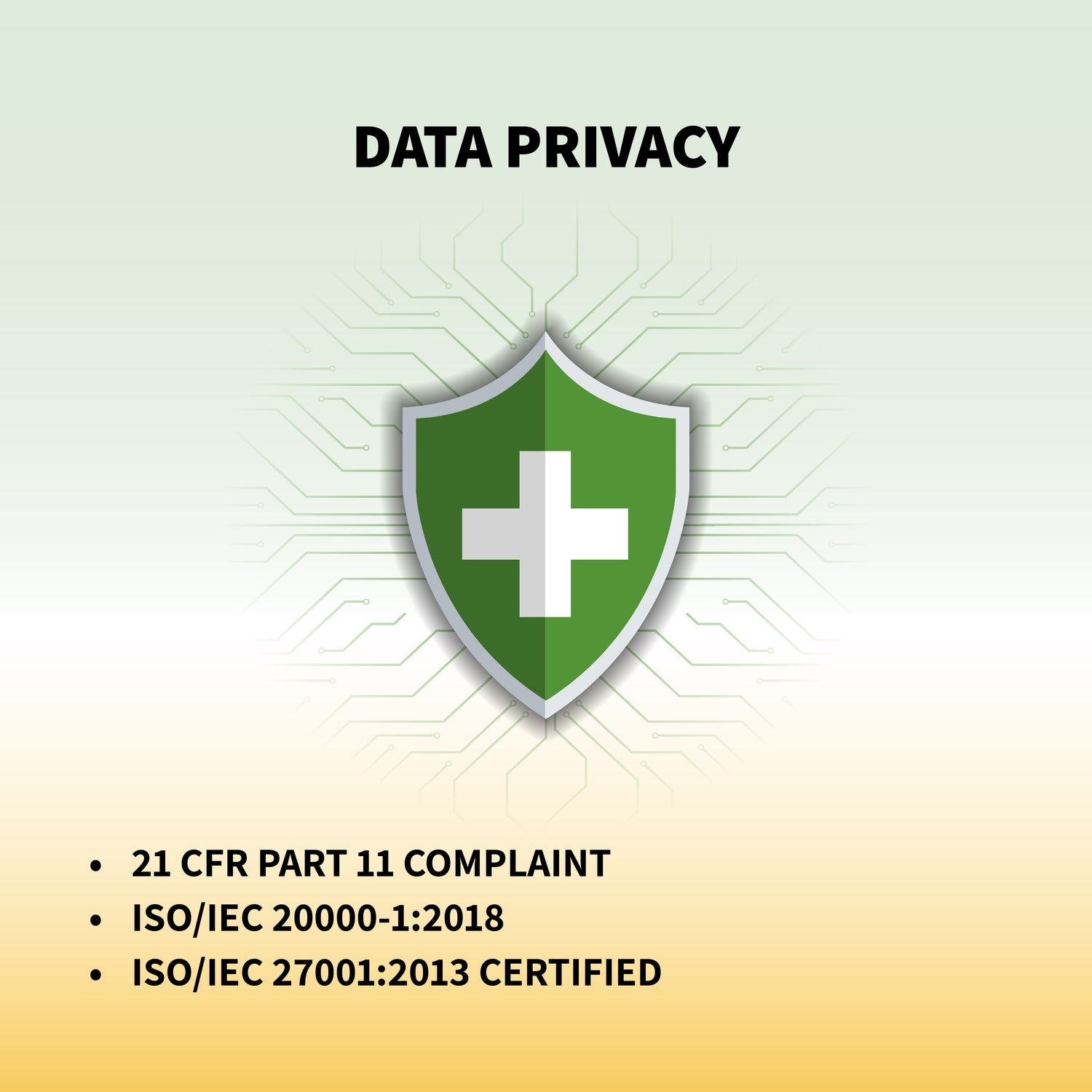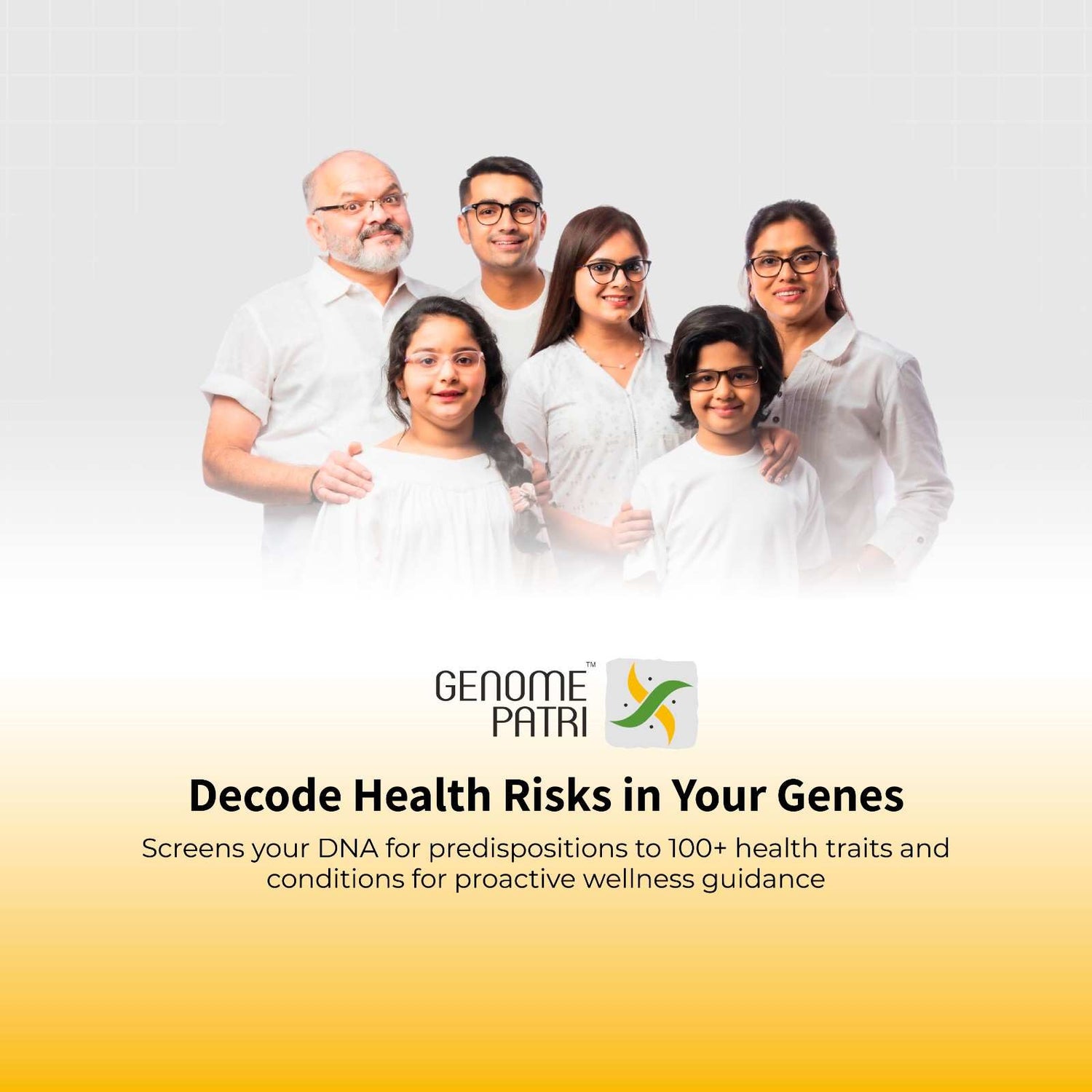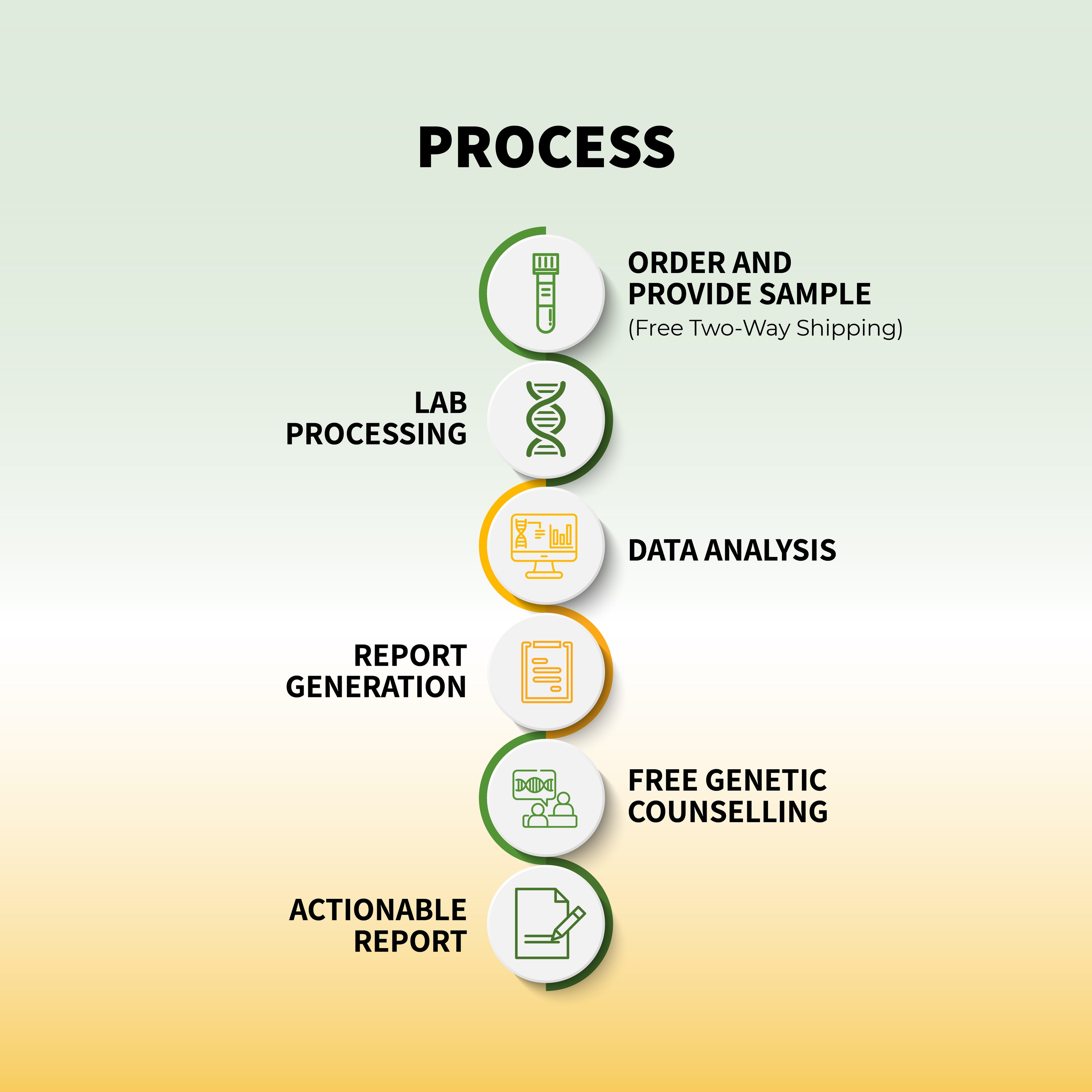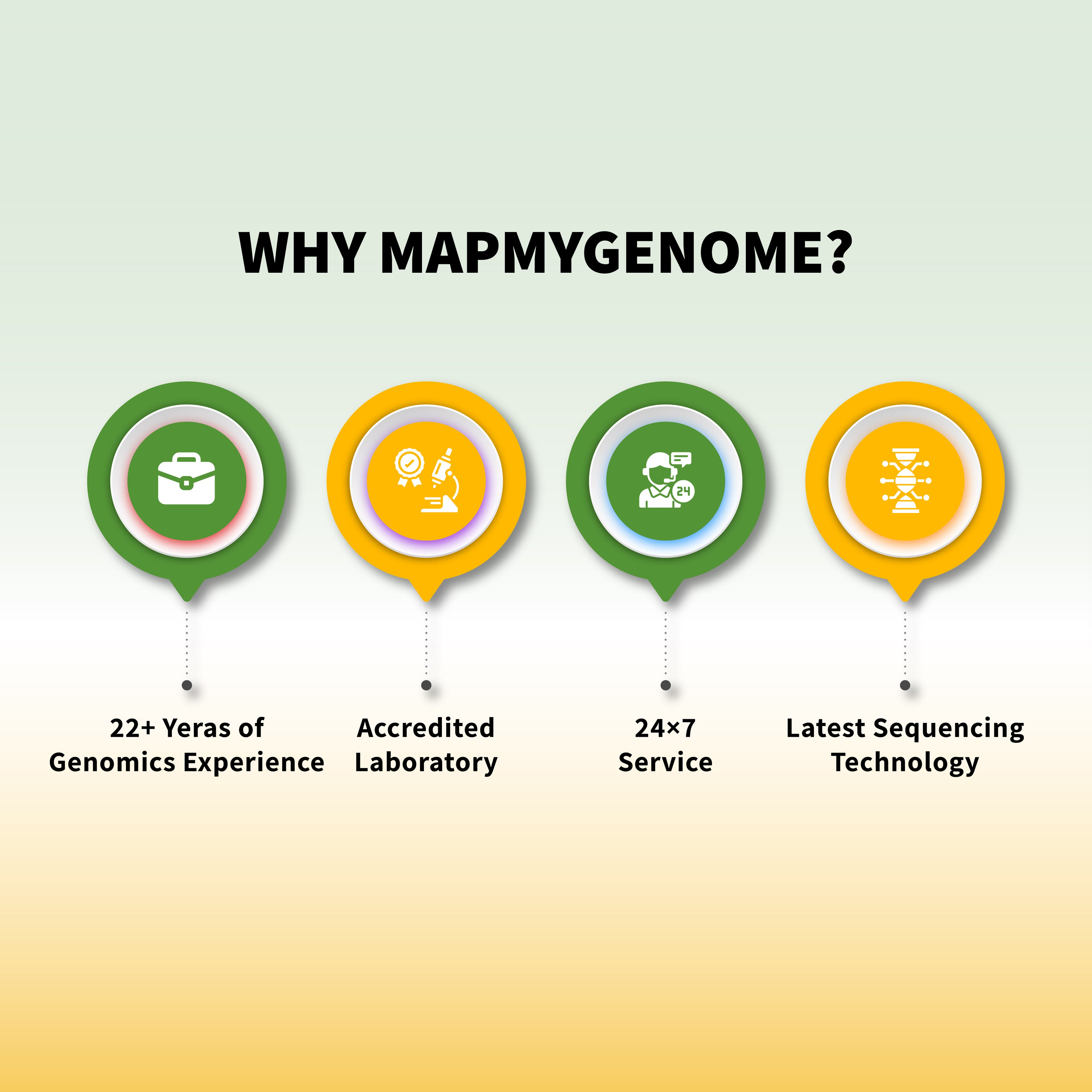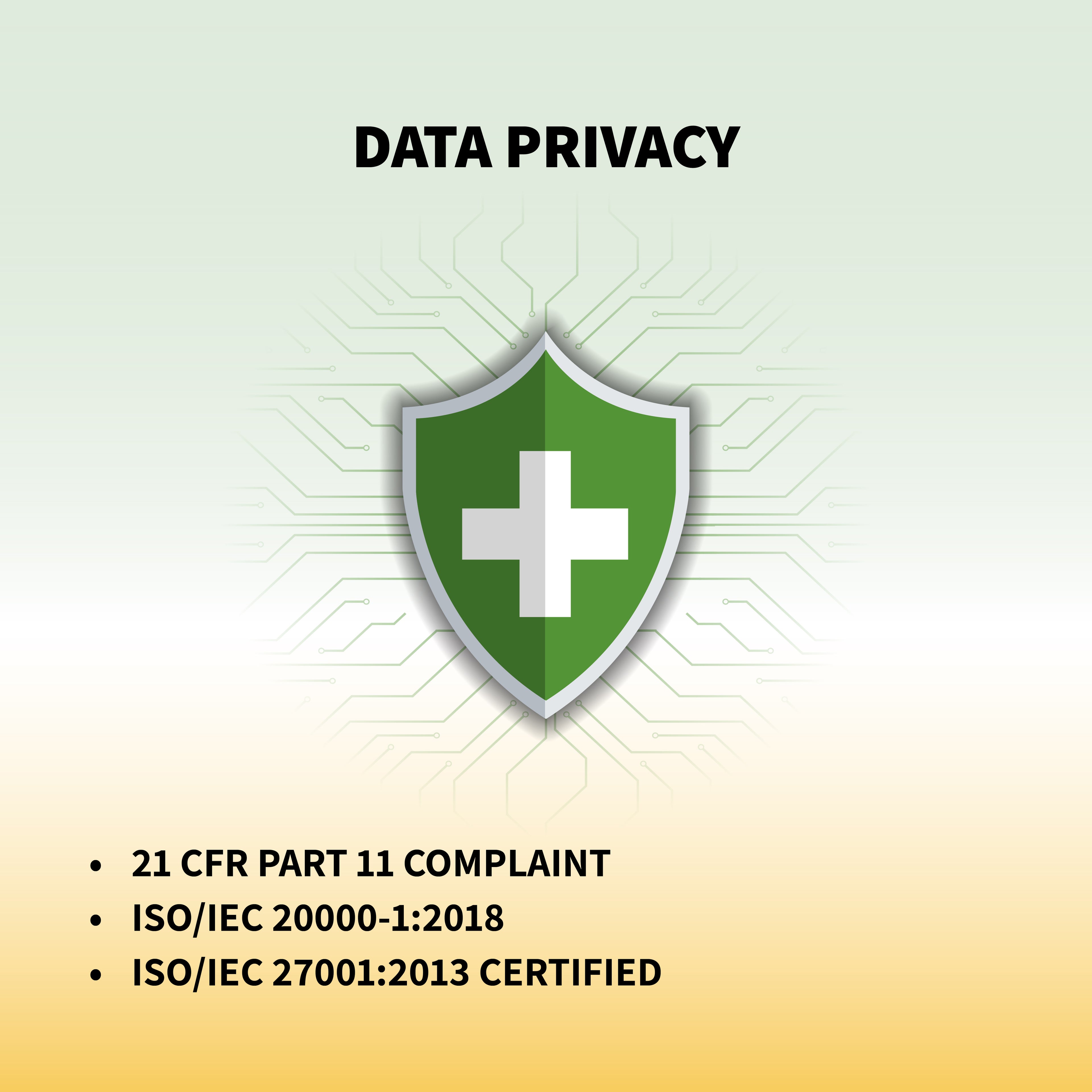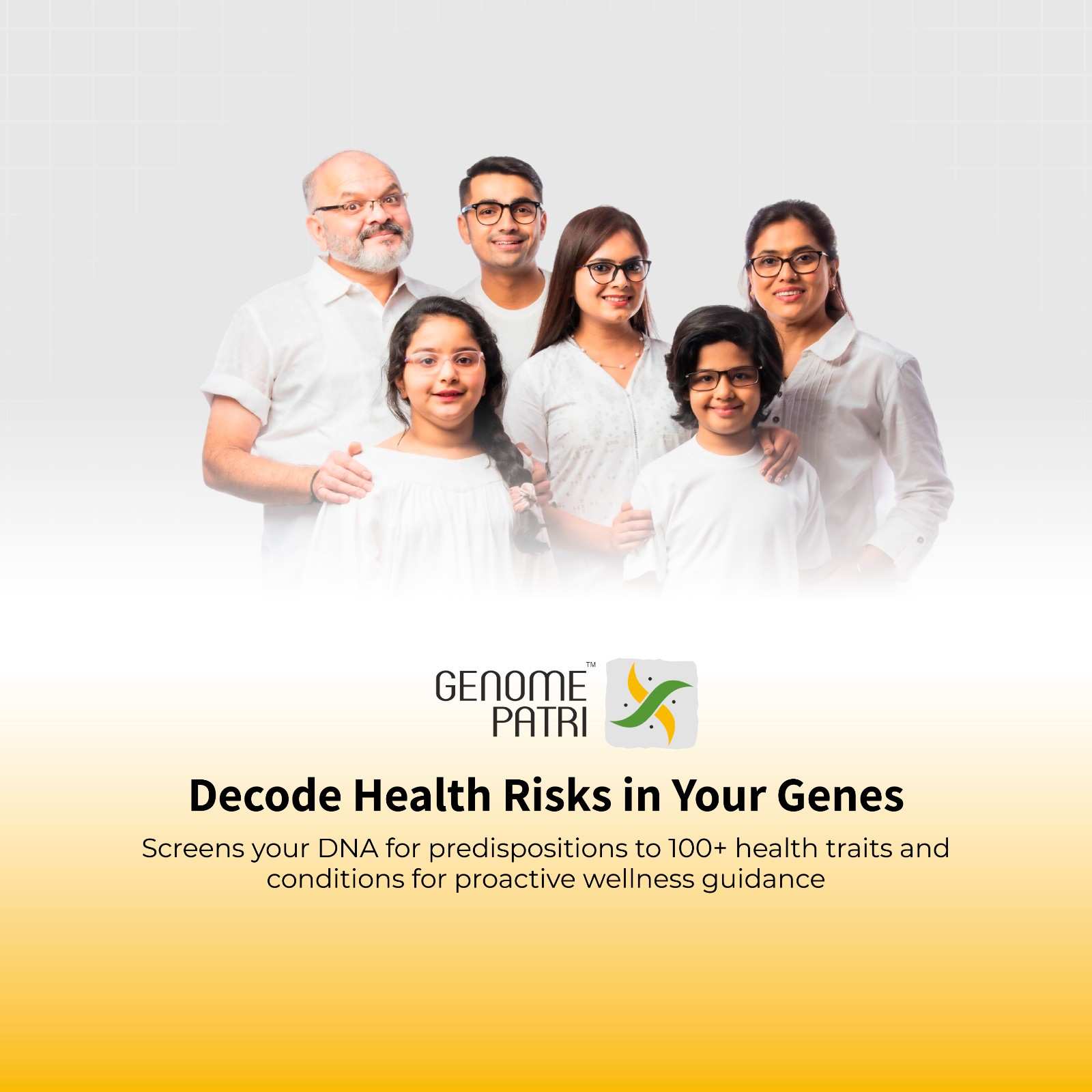अपने स्वास्थ्य का ख्याल रखना हमेशा सर्वोच्च प्राथमिकता होनी चाहिए। नियमित स्वास्थ्य जांच संभावित समस्याओं को जल्दी पकड़ने में मदद कर सकती है, जिससे आपको प्रभावी उपचार का बेहतर मौका मिलता है। इस पोस्ट में, हम स्वास्थ्य जांच के महत्व का पता लगाएंगे, जिसमें लिवर फंक्शन टेस्ट, ब्लड काउंट टेस्ट और पूरे शरीर की जांच जैसे आवश्यक परीक्षण शामिल हैं। हम आपके स्वास्थ्य की यात्रा के लिए अधिक व्यक्तिगत दृष्टिकोण प्रदान करने में डीएनए-आधारित स्वास्थ्य जांच की भूमिका पर भी चर्चा करेंगे।
स्वास्थ्य जांच क्या है?
स्वास्थ्य जांच में आपके समग्र स्वास्थ्य का आकलन करने के लिए डिज़ाइन किए गए चिकित्सा परीक्षणों की एक श्रृंखला शामिल है। ये परीक्षण जोखिम कारकों की पहचान करने, बीमारी के शुरुआती लक्षणों का पता लगाने और आपके शरीर के प्रदर्शन की निगरानी करने में मदद करते हैं।
स्वास्थ्य जांच सभी के लिए लाभदायक है, चाहे उनकी आयु कुछ भी हो, क्योंकि इससे आपके स्वास्थ्य की एक झलक मिलती है और आपको सक्रिय कदम उठाने में मदद मिलती है।
स्वास्थ्य जांच क्यों महत्वपूर्ण है?
-
शीघ्र पता लगने से जान बचती है
मधुमेह या उच्च रक्तचाप जैसी बीमारियों का समय पर पता लगने से समय पर हस्तक्षेप और उपचार संभव हो जाता है। -
इलाज से बेहतर रोकथाम है
नियमित जांच से संभावित खतरों पर प्रकाश पड़ता है, जिससे आप समस्याएं उत्पन्न होने से पहले ही जीवनशैली में बदलाव कर सकते हैं। -
व्यक्तिगत स्वास्थ्य अंतर्दृष्टि
पारंपरिक परीक्षणों को डीएनए-आधारित जांच के साथ संयोजित करने से आपकी आनुवंशिक प्रवृत्तियों के अनुरूप गहन जानकारी मिलती है।
आवश्यक स्वास्थ्य जांच परीक्षण
1. लिवर फंक्शन टेस्ट (एलएफटी)
आपका लिवर आपके शरीर को डिटॉक्स करने, पित्त का उत्पादन करने और पोषक तत्वों को संसाधित करने में महत्वपूर्ण भूमिका निभाता है। लिवर फंक्शन टेस्ट लिवर की क्षति या बीमारी का पता लगाने के लिए ALT, AST और बिलीरुबिन के स्तर जैसे मार्करों का मूल्यांकन करता है।
- यह क्यों महत्वपूर्ण है: यह फैटी लीवर, हेपेटाइटिस या सिरोसिस जैसी स्थितियों की पहचान करने में मदद करता है।
- इसे कब लगवाएं: यदि आपको थकान, पीलिया, या पेट दर्द जैसे लक्षण महसूस हों, या वार्षिक जांच के भाग के रूप में।
2. रक्त गणना परीक्षण (सीबीसी)
पूर्ण रक्त गणना (सीबीसी) परीक्षण आपके लाल और सफेद रक्त कोशिकाओं, हीमोग्लोबिन के स्तर और प्लेटलेट्स का मूल्यांकन करता है।
- यह क्यों महत्वपूर्ण है: यह एनीमिया, संक्रमण और अन्य रक्त संबंधी विकारों की पहचान करता है।
- इसे कब लगवाएं: नियमित स्वास्थ्य जांच के दौरान या यदि आपको थकान, चक्कर आना, या अस्पष्टीकृत चोट लगना महसूस हो।
3. पूरे शरीर की जांच
इस व्यापक जांच में रक्त परीक्षण, इमेजिंग स्कैन और महत्वपूर्ण माप सहित कई प्रकार के परीक्षण शामिल होते हैं।
- यह क्यों महत्वपूर्ण है: यह आपके स्वास्थ्य का समग्र दृष्टिकोण प्रस्तुत करता है।
- इसे कब लगवाएं: आपकी आयु और जोखिम कारकों के आधार पर इसे सालाना या अर्ध-वार्षिक तौर पर लगवाने की सलाह दी जाती है।
डीएनए-आधारित स्वास्थ्य जांच की भूमिका
पारंपरिक स्वास्थ्य जांच से बहुमूल्य जानकारी मिलती है, लेकिन डीएनए आधारित स्वास्थ्य जांच आपके आनुवंशिक कोड में गोता लगाकर इसे एक कदम आगे ले जाती है।
डीएनए-आधारित स्क्रीनिंग कैसे काम करती है?
ये परीक्षण आपकी आनुवंशिक संरचना का विश्लेषण करके कुछ रोगों के प्रति आपकी प्रवृत्ति, दवा प्रतिक्रियाओं और अन्य स्वास्थ्य लक्षणों की पहचान करते हैं।
डीएनए-आधारित जांच के लाभ
- व्यक्तिगत जानकारी: जानें कि आप आनुवंशिक रूप से किन बीमारियों के प्रति संवेदनशील हैं, जैसे हृदय रोग या कुछ कैंसर।
- निवारक कार्रवाई: जीवनशैली में सचेत परिवर्तन करें या लक्षित जांच कराएं।
- दवा प्रबंधन: जानें कि आपका शरीर दुष्प्रभावों या अप्रभावी उपचारों से बचने के लिए दवाओं को कैसे संसाधित करता है।
स्वास्थ्य जांच चेकलिस्ट
अपनी स्वास्थ्य जांच से अधिकतम लाभ उठाने के लिए इस सरल जांच सूची का पालन करें:
-
परीक्षण से पहले:
- अपने चिकित्सक से अपने चिकित्सा इतिहास पर चर्चा करें।
- यदि आवश्यक हो तो उपवास करें (कोलेस्ट्रॉल या रक्त शर्करा जैसे परीक्षणों के लिए)।
- हाइड्रेटेड रहें.
-
परीक्षण के दौरान:
- किसी भी लक्षण या जीवनशैली की आदतों के बारे में ईमानदार रहें।
- शांत और तनावमुक्त रहें।
-
परीक्षण के बाद:
- अपने डॉक्टर के साथ अपने परिणामों की समीक्षा करें।
- किसी भी अनुशंसित जीवनशैली में परिवर्तन या उपचार का पालन करें।
आपको कितनी बार जांच करानी चाहिए?
- 20-30 वर्ष: प्रत्येक 1-2 वर्ष में बुनियादी जांच।
- 40-50 वर्ष: वार्षिक जांच, साथ ही मैमोग्राम या कोलोनोस्कोपी जैसे अतिरिक्त परीक्षण।
- 60 और उससे अधिक: दीर्घकालिक बीमारियों के लिए अधिक लगातार निगरानी।
स्वास्थ्य जांच के बारे में आम गलतफहमियाँ
-
“मैं स्वस्थ हूँ, इसलिए मुझे स्क्रीनिंग की ज़रूरत नहीं है।”
यहां तक कि स्वस्थ व्यक्ति भी शीघ्र पता लगने से लाभ उठा सकते हैं। -
“स्वास्थ्य जांच बहुत महंगी है।”
कई स्वास्थ्य योजनाएं बुनियादी जांच को कवर करती हैं, तथा रोकथाम की लागत उपचार से कम होती है। -
“डीएनए परीक्षण अनावश्यक हैं।”
डीएनए-आधारित जानकारी पारंपरिक परीक्षणों का पूरक हो सकती है, तथा आपके स्वास्थ्य के बारे में अधिक व्यापक समझ प्रदान कर सकती है।
स्वास्थ्य जांच के बारे में अक्सर पूछे जाने वाले प्रश्न
1. पूर्ण शारीरिक जांच और सम्पूर्ण शारीरिक जांच में क्या अंतर है?
पूर्ण शारीरिक जांच में रक्त परीक्षण और इमेजिंग जैसे मानक परीक्षण शामिल होते हैं, जबकि संपूर्ण शारीरिक जांच में गहन विश्लेषण के लिए अतिरिक्त उन्नत परीक्षण भी शामिल हो सकते हैं।
2. क्या डीएनए आधारित स्वास्थ्य जांच विश्वसनीय है?
हां, डीएनए-आधारित परीक्षण आपकी आनुवंशिक प्रवृत्तियों के बारे में सटीक जानकारी प्रदान करने के लिए उन्नत प्रौद्योगिकी का उपयोग करते हैं।
3. स्वास्थ्य जांच के परिणाम आने में कितना समय लगता है?
परीक्षण के प्रकार के आधार पर परिणाम आने में कुछ घंटों से लेकर एक सप्ताह तक का समय लग सकता है।
4. यदि जांच में कोई समस्या सामने आती है तो क्या होगा?
आपका डॉक्टर समस्या के समाधान के लिए आगे के परीक्षण, उपचार या जीवनशैली में बदलाव के बारे में आपको मार्गदर्शन देगा।
5. क्या स्वास्थ्य जांच से बीमारियों को रोका जा सकता है?
जांच से बीमारियों की रोकथाम तो नहीं होती, लेकिन जोखिमों का पहले ही पता लगाने में मदद मिलती है, जिससे आप निवारक उपाय कर सकते हैं।
आज ही अपने स्वास्थ्य की जिम्मेदारी लें!
स्वास्थ्य जांच केवल परीक्षण से कहीं अधिक है; वे आपकी भलाई को नियंत्रित करने का एक तरीका हैं। लीवर फ़ंक्शन टेस्ट से लेकर डीएनए-आधारित अंतर्दृष्टि तक, आपको स्वस्थ, खुशहाल जीवन जीने में मदद करने के लिए बहुत सारी जानकारी उपलब्ध है।
तो, इंतज़ार किस बात का? आज ही अपनी स्वास्थ्य जांच बुक करें और सक्रिय, सूचित स्वास्थ्य प्रबंधन के भविष्य में कदम रखें!


